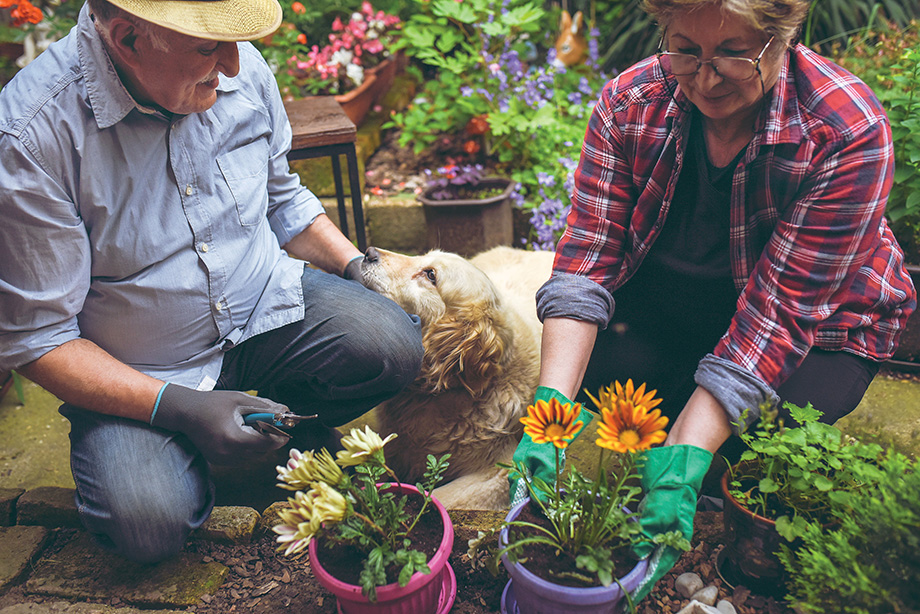
iStock.com/Ika84
Flowers are always a welcome gift! They can cheer you up when you are down, make gray days bright and make you feel better when you are sick—on the other hand, flowers can also make your pets sick. According to WebMD Pet Health Center, more than 200,000 pets are poisoned by flowers and plants each year. Common symptoms of pet poisoning include: lethargy, weakness, vomiting, diarrhea, drooling and nausea. While pet poisoning is considered rare, you can avoid the risk by being aware of harmful varieties of plants and flowers.
Common flower varieties include chrysanthemums, lilies and most bulb varieties such as tulips, iris, crocus, hyacinth and daffodils. Chrysanthemums contain pyrethrins harvested from the bloom, which are used in organic pesticides and can cause drooling and lethargy in your pet. The bloom and stamen of the lily are extremely poisonous to cats but only mildly so to dogs. Bulb flowers like hyacinth and daffodils are toxic if your pet eats the bulb, but the flowers are not toxic. Common house plants that are toxic include: dracaena varieties, corn plant and marjenata varieties, some succulents varieties like aloe and jade, and extremely poisonous diffenbachia varieties (dumb cane).
Often, pets instinctively avoid these flowers and plants, however younger pets are curious. If you believe your pet has consumed a poisonous flower or plant, immediately contact your veterinarian or emergency clinic. It is helpful to know the name of the flower or plant consumed and to bring a sample in a small bag with you to the appointment, so that your doctor can prescribe the best treatment.
Continue gifting beautiful flowers and plants—but be sure to discuss pet concerns with your local florist when placing your order.
Shelli Erck is the owner of Hudson Flower Shop. Find more at hudsonflowershop.com.






















